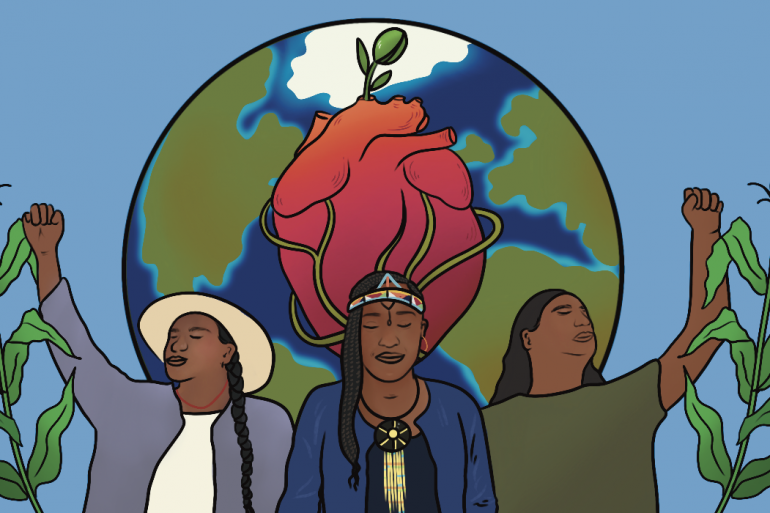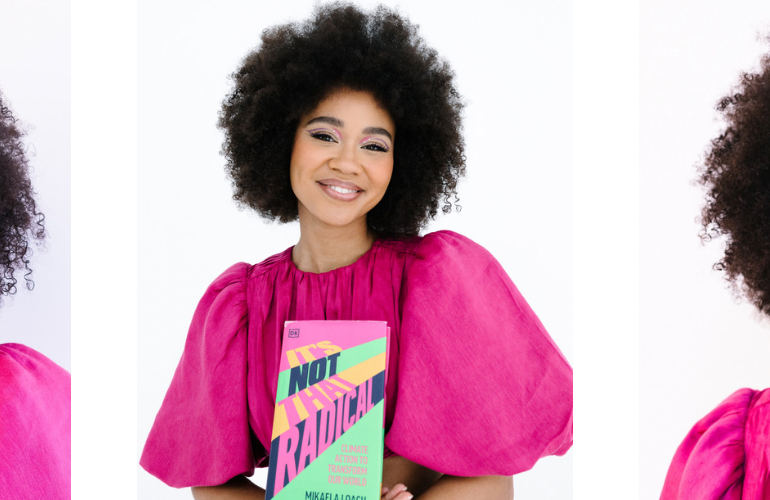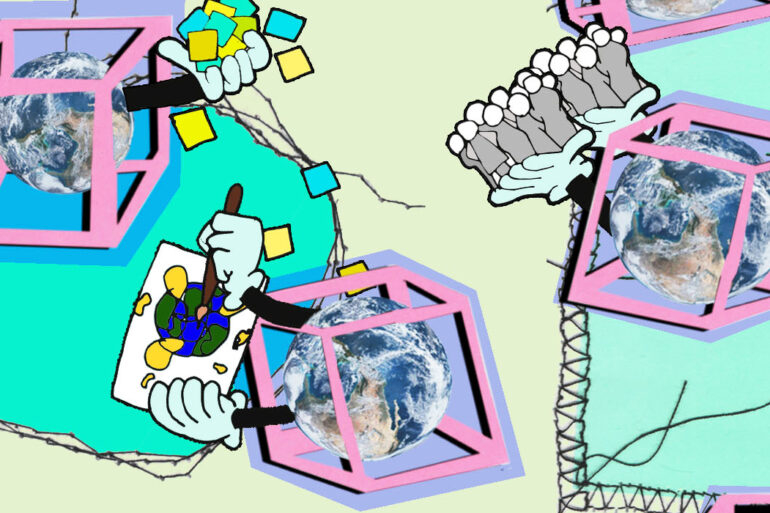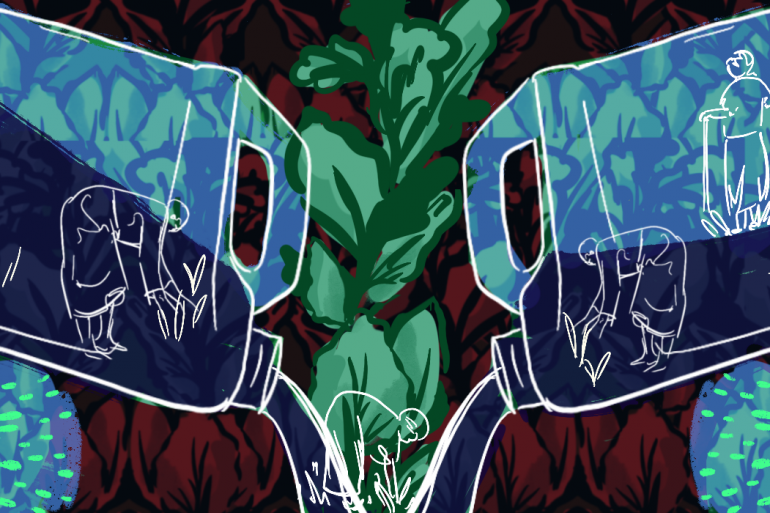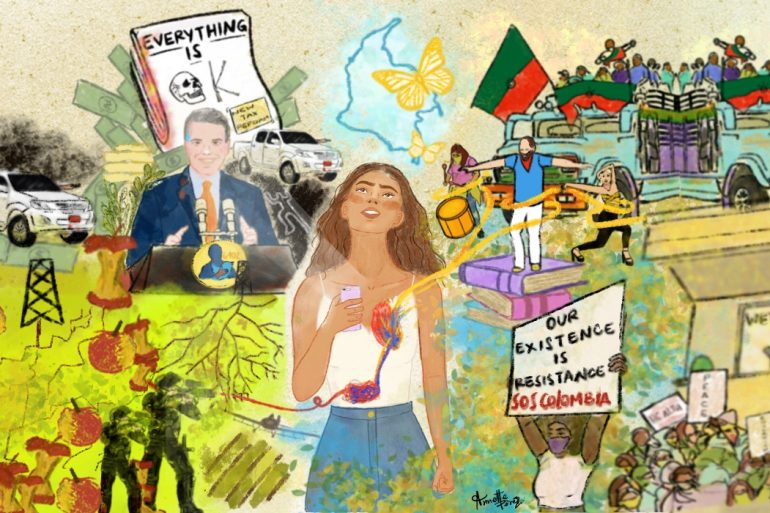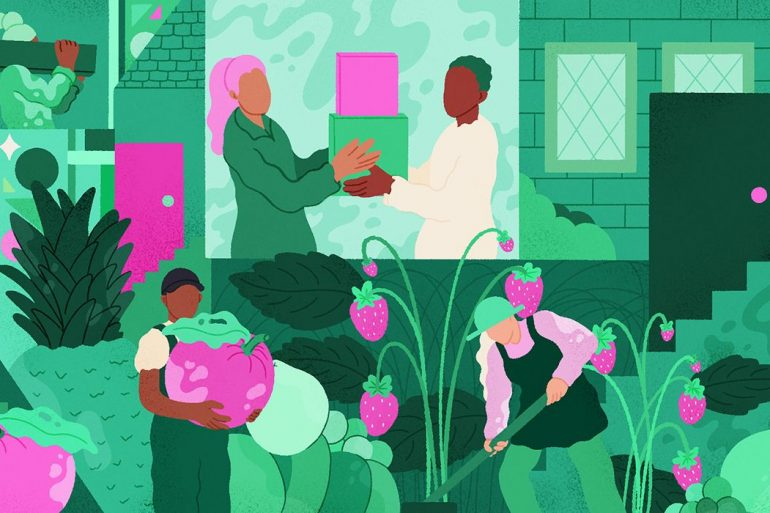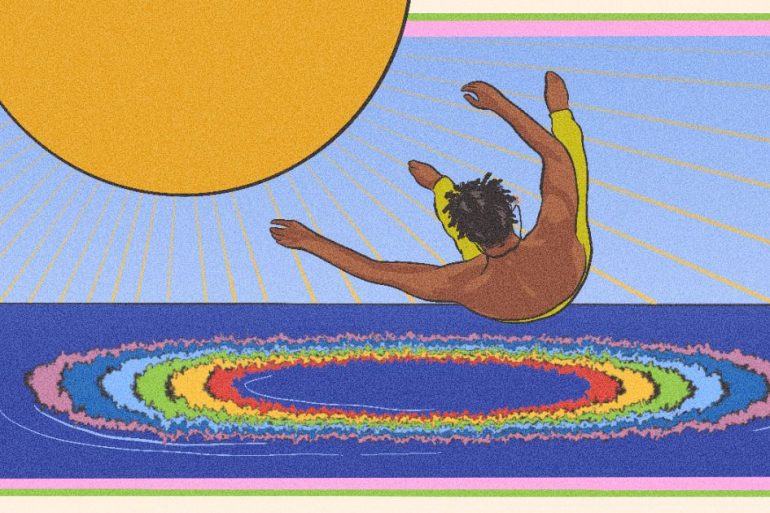I’m the type of person who has always known who I was and what I wanted. But that all changed once I became a mother.
Nothing really prepares you for the rollercoaster of emotions that you experience: love, loneliness, joy, sadness, pride, guilt, adoration, self contempt, calmness, rage.
Even my journey into motherhood was not what I expected. I most definitely did not have that pregnancy glow; instead my complexion had a constant green tint of nausea.
I love my children and I love being a mother. I really do. But in those first four years, I felt like I lost myself to motherhood.
Being a mother was all I did, it was all I was. I didn’t have any friends, I didn’t go out, and I felt like I lost my passion for social justice. I didn’t know who I was anymore, and the postnatal depression and anxiety only made it worse.
My loss of identity led me to reach out to others, friends that I met from Parents For Future UK, and to hear their perspectives, in the hope of providing a sense of comfort and relief for people. I want to let others know that we don’t have to lose ourselves completely to the role.
Who are Parents for Future?
In July 2023, I became aware of the human impact of the climate crisis through a friend, who is also a social justice activist. It was also around the same time that Pakistan suffered from the devastating floods, displacing millions. It was terrifying to see. From there, I learned that countries in the Global South are already experiencing climate breakdown.
The Philippines is one of the countries most at risk of the climate crisis and is hit by 20 typhoons a year. Every year that we continue our dependence on fossil fuels, is another year that the planet gets warmer and the typhoons become stronger.
It’s also my motherland: the home of my parents, family, and my ancestors. I want to be able to bring my husband and children to the Philippines and share my culture and heritage. I want them to experience it first hand, rather than just through my stories. I felt like I needed to do something about it, to protect my homeland, my culture, my people, so I joined Parents for Future UK.
Parents For Future UK is a grassroots climate action group comprised of parents and carers, and it was within this wonderful and inclusive community that I started to build my own community of friends with whom I share a passion for social justice and activism. And this is where I met JM, a fellow Filipino and mother of two biracial children, and Demi, a biracial mum of two mixed race children.
A shadow of oneself
Prior to having children, we all had a strong sense of who we were and what we stood for.
Demi tells me that as much as she enjoyed being a stay at home mum for her daughter, she lost so much of herself, which is why she decided to pursue her PGCE in Religious Education at Oxford University. But that isn’t without feeling the immense guilt that she feels for not being a stay at home mum for her son. I get it. That mum guilt is real, and unfortunately, that guilt is there regardless of the choices you make. You feel guilty no matter what.
I’ve always been aware of what I wanted to do, but once I became a mother, I felt like I had lost my sense of ambition. I wasn’t motivated to do anything, and frankly, I was also just so tired.
Pair the lack of ambition and motivation with seeing your husband continue on with his life as normal, achieving things beyond parenthood, you get a hefty dose of resentment in the mix.
I was jealous of my husband. On the outside, it was like nothing changed. His body stayed the same, he didn’t have baby brain, and even just the thought of being able to talk to other adults made me envious.
So much of our time as stay at home parents is spent with just our children. And as much as I appreciate the privilege of being a stay at home parent and the joy of seeing all the learning and growth of your children in real time, it is also very all consuming. In addition to losing your sense of self, you lose time alone, time to socialise, time to just use the bathroom in peace.
Demi made a comment that I just found so relatable. “Most women at some point in motherhood feel like they’ve lost themselves,” she said. “You sacrifice so much and you become a shadow of yourself.”
So much of who you are as a person changes so quickly. You would think that all the National Childbirth Trust antenatal sessions that I went along to would prepare parents for something that big and drastic – but there was no mention of it in any of the classes I took.
And the care you receive from health care professionals post birth is just as bad. The postpartum period is something that is not widely discussed. So much of being a woman and a mother is such a stigma in our society, and it can often feel like a lonely and isolating place.
Finding community
In June 2020, I was six months postpartum with my first child, and with the resurgence of the Black Lives Matter movement, I realised I needed to get back into activism.
Subscribe to shado's weekly newsletter
Exclusive event news, job and creative opportunities, first access to tickets and – just in case you missed them – our picks of the week, from inside shado and out.

Racial justice was always something I fought for. As a person and colour and a daughter of immigrants, I saw and experienced first hand the harm of racism. Being a new parent, I was scared of what the future held for my child. I didn’t want them to experience the same racism I had. I didn’t want them to experience racism at all. This was when my activism was reignited and where my path towards Parents for Future UK started.
Having grown up in the diverse suburbs of Toronto in Canada, I’d never experienced racism and micro-aggressions to an extent that I have since living in the UK. I consider myself lucky to have grown up surrounded by diversity. I learned so much about people and it just opened the world up to me. In a crowd, no one stood out because of the colour of their skin.
So it was definitely a culture shock moving to the outskirts of London and being the darkest one in the room (and I am a relatively light skinned Filipina). Dark skin, dark eyes, dark hair, different accent. I automatically stood out, and was treated differently.
It wasn’t another three years until I found Parents for Future UK.
Now, I can share these stories, and help people understand the need for anti-racist education, the need to decolonise our minds in order to create a better world for our children, and for future generations. And even though a lot of my activism is based in racial and climate justice, it’s actually a fight for all social justice, as they’re all linked. Fighting for climate justice is also a fight for racial justice, for a Free Palestine, for trans justice, for Indigenous rights.
Bayanihan
For both pregnancies, I was diagnosed with hyperemesis gravidarum, a severe form of morning sickness. I felt vulnerable, scared and alone. I wished to be closer to my family and friends from home, and these feelings and longing for community continued into postpartum.
They say it takes a village to raise a child, and I’ve learned that it really does. It’s also necessary for parents to have that support too. I love my husband and he takes such good care of me, but there were many times during pregnancy and postpartum where I just wanted my mom, my titas (aunts), and my best friend. I needed their care and support.
There’s a word in Tagalog: “Bayanihan.” It means communal unity. I longed for it. In a way, motherhood is activism – and both need collective action. Mothers need community to provide support and care for themselves and their children. In order to be successful, activism requires collective work and care. We need each other to fight for justice, to keep us going, and to remind us when we need to rest.
I am grateful for Parents for Future UK and the community that I have found. It is this community that makes me feel like I am doing the right thing; that I am not weird or different because I want more for my children. That I am not alone.
Mine and JM’s experiences align in many ways. “Motherhood has reignited my activism in a way, because it’s not just me anymore, it’s actually for my children, what am I leaving them with? What kind of future will they have?” she questioned. “I want them to see that I am doing this for them, I’m not just in the background; I’m there actively trying to make the world a better place for them, and all children.”
Motherhood isn’t just about being a caregiver to your children, it is a form of activism. You don’t have to get lost in your role as a mother or become a shadow of yourself. Use this role to strengthen your activism, because what is activism if it isn’t for other people.
Parenthood and the need for activism
As parents, it is our responsibility to make the world a better place for our children, and I think that is especially true for parents from marginalised communities. We know what it’s like to have to fight for a seat at the table, to be treated with prejudice, to be ignored, to hide parts of ourselves to avoid being ridiculed and to ‘fit in’ with societal ‘norms’, and we do not want our children to experience the same.
I use my role as ‘mother’ and my love and care for my children, to fight for a better world for them, for all children, and for future generations. I owe it to them. We owe it to them.
We cannot stay silent in the face of injustice. Our children did not ask to be brought into this world, so we owe it to them to create a better world where they can be safe and happy. What parent wouldn’t want that for their children?
What can you do?
- Read Mind Over Mother by Anna Mathur to help through your postpartum journey and dealing with anxiety, as well as practical techniques to address it.
- For support with dealing with hyperemesis gravidarum, visit Pregnancy Sickness Support to join their community.
- Visit Parents for Future UK to learn how you can get involved in the climate movement as parents and carers.
- Read Consumed by Aja Barber for a good introduction into climate change and how it intersects with colonialism and racial justice.
- Read Active Hope by Joanna Macy and Chris Johnstone is a great book to help guide activists when things seem bleak, and provides tools and strategies to overcome it. Incredibly inspirational and moving, it is a must read for all activists to sustain us and keep us going.
- Read Why young pregnant people need your support, not your judgement




